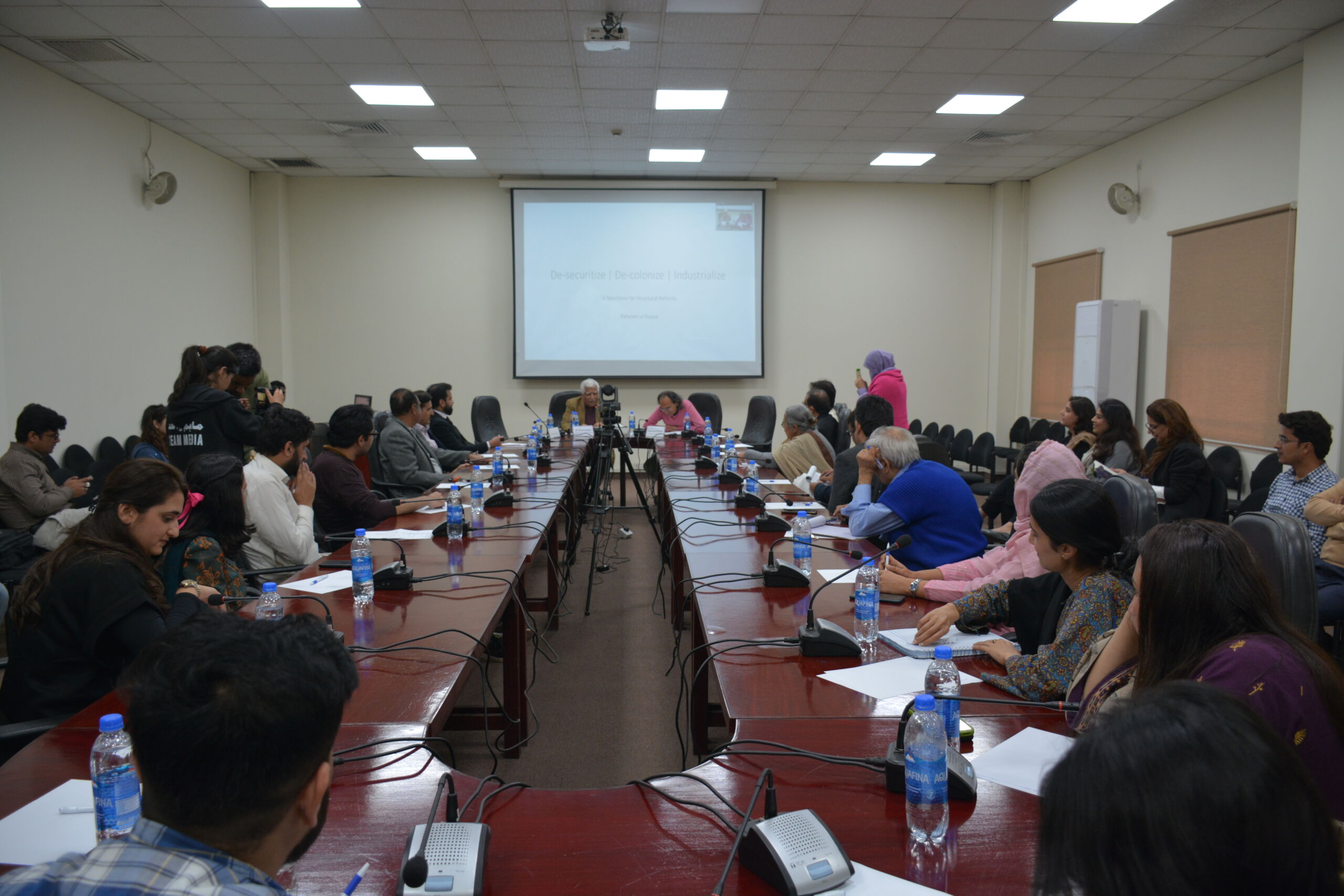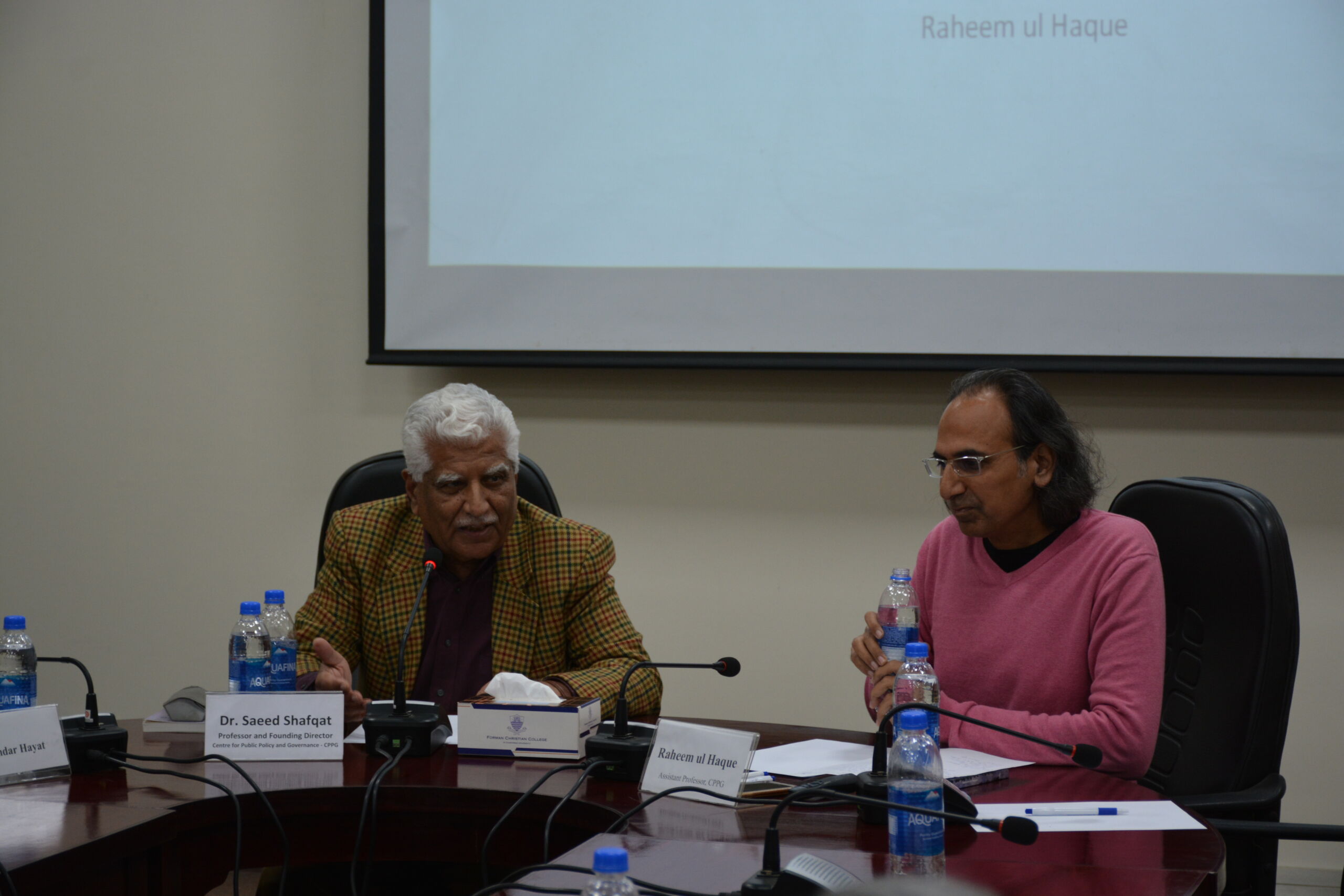
De- securitize, De-colonize, Industrialize: A Manifesto for Structural Reforms
Book Launch
Past Event
Feb 20, 2024 - 5:00 am |
Feb 20, 2024 - 7:00 pm
Raheem ul Haque
E-002 CPPG FCCU
Upcoming Event
On February 20, 2024, CPPG organized the launch of Raheem ul Haque’s book titled “De- securitize, De-colonize, Industrialize: A Manifesto for Structural Reforms.” Haque is an Assistant Professor at the CPPG.
Initiating the conversation, Raheem highlighted that Pakistan has been going through a multi- faceted decline since the early 1980s. The contemporary crisis is not just an economic crisis, as the mainstream narrative suggests but a holistic crisis encompassing governance, education, environment, culture & arts and work ethic in addition to the economic crisis. He pinpointed five normalizations which are at the root of our holistic decline including the normalization of physical, political and economic insecurity, weak civil society, militant religious nationalism,
negation of critical thinking, culture and arts, and lastly professional dishonesty.
Haque suggested that in conducting a political, socio-cultural, economic and institutional analysis, he understood that it was Pakistani state’s current strategic development framework, premised on the Security State using militant religious nationalism for nation building and a market-centric paradigm for economic development, that had led to these normalizations over the last forty years.
He argued that the Pakistani state fit all the criteria for a security state as defined by various scholars, and further that the implications of Pakistan’s Security State went far beyond the usual discussion on the defense budget to include an adverse impact on nation building, international stature, rule of law, general security and lastly the economy. Thus, the imperative of de-securitization of state. Similarly, he argued that state’s de-colonization was also required to ensure improved governance through a political plan that gave greater importance to the local (government, planning, knowledge, language, economy and thus people). However, he argued that the state’s subscribed religious nationalism was a hurdle in this regard as it used another colonized subject (the Hindu India) as the ‘other’, precluding a discussion on the entrenched colonial structures and modes of governance. He suggested that two-nation theory had been an outcome of the early 20th century Indian politics under colonial rule which helped Muslims of North India to democratically win a separate country. However, by sanctifying it as the ideology of Pakistani State amounts to being stuck in the politics of early 20th century. He instead advocated for adopting civic nationalism for nation building as it would better cater for Pakistan’s diverse citizenry.
Due to the shortage of time, Haque briefly touched upon the economic argument which involved an analysis of Pakistan’s neoliberalism inspired economic paradigm in light of the success stories of East Asia particularly China and South Korea. He argued that Pakistan’s twin fiscal and trade crises were an outcome of its lack of production capacity and capability, which could not be overcome without a proactive role of the state in long term planning and in improving its governance.
The session was followed by a Q&A session.



